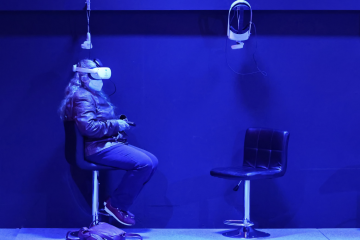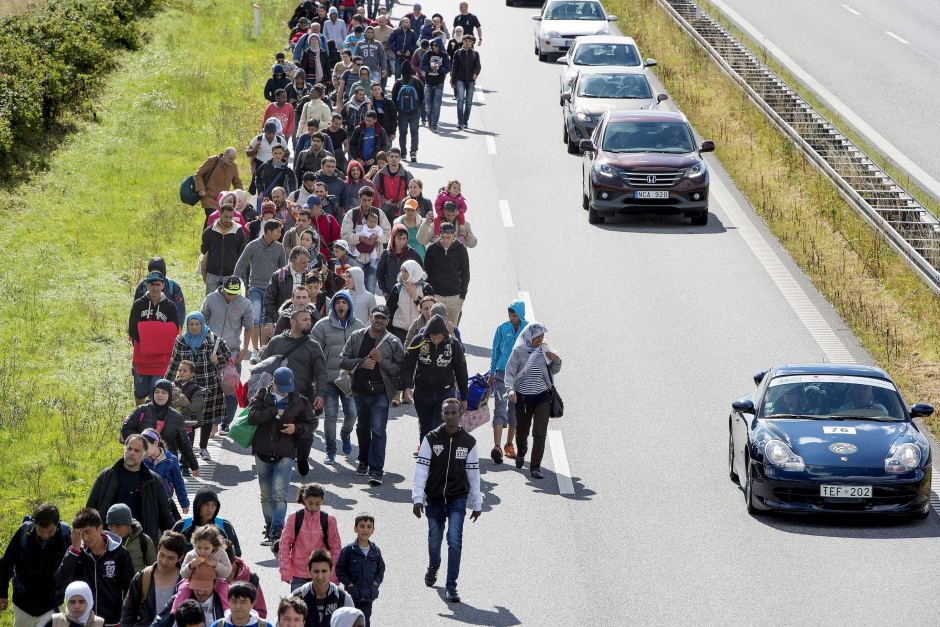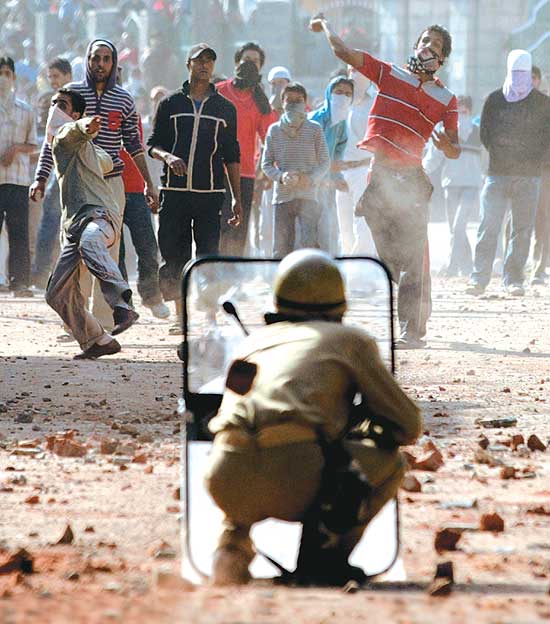By Anthony De Luca-Baratta
After the January 29, 2017 terrorist attack that killed 6 Muslim worshippers at the Centre Culturel Islamique de Québec, secularism resurfaced as a hot-button issue in Quebec politics.
Prime Minister Justin Trudeau was quick to express “shock, sadness and anger” at the shooting. In a statement, the Prime Minister proclaimed that “Muslim-Canadians are an important part of our national fabric, and these senseless acts have no place in our communities, cities and country”[1]. Rona Ambrose, former interim leader of the opposition, called the islamophobic attack an “unspeakable crime”, while leader of the Bloc Québécois, Rhéal Fortin, was “speechless in horror”. Meanwhile, in Quebec City, Premier Philippe Couillard expressed “solidarity with Quebec Muslims” and Jean-François Lisée, leader of the Parti Québécois and leader of the opposition, called the act “intolerable”[2].
Québec Solidaire MNA Amir Khadir took a different approach to his condolences: he blamed the shooting, in part, on U.S. President Donald Trump. The representative of Mercier tweeted the following the night of the shooting: “I hold the islamophobic U.S. president who is propagating hate partially responsible [for the shooting]. It’s dangerous.[3]”
While Mr. Khadir’s charge against President Trump is no doubt correct, the real enemies are closer to home than his tweet suggests. On January 7, the Globe and Mail reported that after a minute of silence for the victims of the Quebec City attack, the members of the National Assembly promptly began debating “Quebec identity”, with opposition leaders calling for “rules to limit religious headgear among police officers and other figures”. The debate centres on the controversial Bill 62 tabled by the Liberal government, which would bar women from wearing face coverings while administering or receiving government services.[4] While the government has offered no evidence that the wearing of the veil would impair the administering or decrease the quality of services, the bill does not go far enough for the opposition parties. While the Parti Québécois supports an outright ban of the niqab, the Coalition Avenir Québec (CAQ) lead by François Legault wants to ban police officers, judges and prison guards from sporting religious symbols[5]. Mr. Legault, who two summers ago called on the government to ban the wearing of the burkini on Quebec beaches, defended his party’s position: “It’s important to be open to welcoming newcomers, but we must limit the wearing of religious symbols so we can better live together”[6].
Given that, according to a 2012 poll conducted by the Montreal-based Association for Canadian Studies, one third of the population of Quebec considers religion to be “very important” to them[7], it is unclear who Mr. Legault’s “we” refers to. Nevertheless, one thing is clear: our politicians have fundamentally misunderstood the meaning of the word “secularism”. According to the UK-based National Secular Society, “secularism is a principle that involves two basic propositions. The first is the strict separation of the state from religious institutions. The second is that people of different religions and beliefs are equal before the law”. They continue: “Secularism seeks to defend the absolute freedom of religious and other belief, and protect the right to manifest religious belief insofar as it does not impinge disproportionately on the rights and freedoms of others”[8]. In other words, religious neutrality means that the State should not be in the business of promoting one religion or system of beliefs, but must protect the right of all citizens to hold and practice whatever beliefs they hold.
The desirability of the separation of church and state is unquestionable. If church and state were not separated, there would be no basis on which to challenge the State if it should choose to use its coercive powers to persecute religious minorities, or even majorities. Freedom from belief, along with the freedom to disagree with government officials’ religious views are fundamental principles of all liberal democracies, and should be vigorously protected. However, the freedom to practice one’s own religion in one’s private life is an equally fundamental right, and goes hand in hand with the religious neutrality of the state.
The proposals of the Couillard government, along with the counter-proposals of the Parti Québécois and CAQ with respect to religious “neutrality” directly infringe upon the right of religious freedom that is guaranteed by secularism, an ideology in which our politicians profess belief. Instating a ban on face coverings (even for government officials) without presenting any evidence that a woman wearing a niqab poses a threat to Quebecers is nothing more than a bigoted attempt to prevent Muslim women from being overtly faithful to their religion. The idea that civil servants should not be permitted to show signs of religiosity is not secular, it is totalitarian.
Critics of this interpretation of secularism might object that insofar as the government is not allowed to favour one religion over another, government officials should not be allowed to wear visible signs of religiosity. This objection is akin to arguing that because the government is not allowed to dictate its constituents’ favourite colour, government officials should only wear white clothing. It fails to make the distinction between the state as an institutional structure and government officials as private citizens who have the right to religious freedom. A police officer wearing a crucifix, a teacher wearing a kippah, or a judge wearing a hijab should not be viewed as signs of government endorsement of a religion. Instead, they should be viewed as private citizens expressing personal beliefs in their place of work. As long as government officials do not make public policy decisions based on their own personal faith, secularism protects the right of government officials to wear whatever they please, provided that it does not impair their function within the government.
The failure of our politicians to grasp the true meaning of secularism is damaging to Quebecers’ views of religious minorities. By suggesting various bans on religious freedom, aimed primarily at Muslim women, our representatives are legitimizing the bigotry in which the hateful ideas of people such as Alexandre Bissonette, the Quebec City terrorist[9], are allowed to flourish in all their ugliness.
On February 2, Le Devoir reported that the far right in Quebec is “coming out of the shadows”. The article notes that far right movements are getting better organized, slowly becoming more visible in social media, traditional media, and in cities across the province[10]. During the 2016 U.S. presidential election campaign, President Trump played on the fears and prejudices of a minority of bigots in his country, winning the White House to the dismay of outside observers. Earlier in 2016, the United Kingdom was led to vote to leave the European Union by Nigel Farage, former leader of the xenophobic UK Independence Party. In France, former far right Front National candidate for president Marine Le Pen received 21.3% of the popular vote in the first round of the presidential election, advancing to a runoff election against former candidate and now president Emmanuel Macron, who only received 24% of the initial vote[11]. In Germany, Chancellor Angela Merkel’s greatest threat in the September election is the anti-immigrant, far right Alternative for Germany[12].
The ugly reality is that bigotry against minority groups, specifically Arab Muslims, is on the rise across the Western world. We have come to a moment of reckoning. Are we going to uphold a noble vision of a secular society? One that stands firm against the poison of theocracy, all the while standing by and protecting the rights of religious minorities? Politicians in Quebec have a moral duty to abandon their fear-mongering, islamophobic rhetoric, along with their oppressive legislative proposals.
It is time for Quebec to get on the right side of history. We must not allow our politics and our culture to move further from 2017 and closer to 1984. As the horrific attack of January 29 demonstrates, lives literally depend on it.
[1] Justin Trudeau, “Statement by the Prime Minister of Canada on the fatal shooting in the city of Québec,” Justin Trudeau, Prime Minister of Canada, January 29, 2017.
[2] Jill Slattery, “Canadian leaders express outrage and shock at Quebec mosque attack,” Global News, January 30, 2017.
[3] Ibid.
[4] Ingrid Peritz, “Debate over wearing religious symbols returns to Quebec one week after mosque shooting,” The Globe and Mail, February 8, 2017.
[5] Raquel Fletcher, “Quebec’s Bill 62 aims to impose religiously neutral public service,” Global News, October 18, 2016.
[6] Ingrid Peritz, “Debate over wearing religious symbols returns to Quebec one week after mosque shooting”
[7] Randy Boswell. “Religion not important to most Canadians, although majority believe in God: poll.” National Post, April 7, 2012.
[8] “What is Secularism?” National Secular Society.
[9] Jeff Lagerquist. “Terror charges unlikely in Quebec City mosque shooting: lawyer.” CTVNews.ca, February 7, 2017.
[10] Porter, Isabelle. “L’extrême droite de Québec sort de l’ombre.” Le Devoir, February 2, 2017.
[11] Alissa J. Rubin. “Marine Le Pen and Emmanuel Macron Advance in French Election.” The New York Times, April 23, 2017.
[12] Mark MacKinnon. “Angela Merkel is liberalism’s last great hope – for now, anyway.” The Globe and Mail, January 1, 2017.




